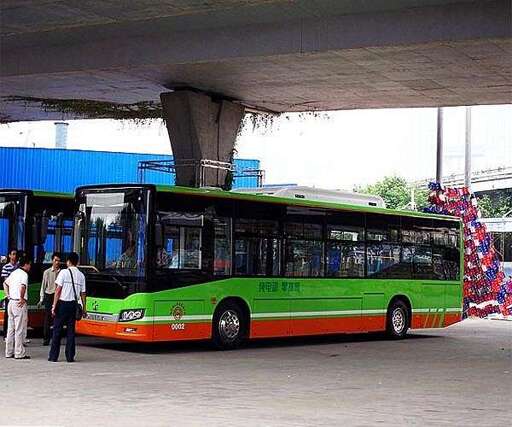Norway: Chinese-made electric buses have major security flaw, can be remotely stopped and disabled by their manufacturer in China, Oslo operator says
The public transport operator in Norway’s capital said Tuesday that some electric buses from China have a serious flaw – software that could allow the manufacturer, or nefarious actors, to take control of the vehicle.
Oslo’s transport operator Ruter said they had tested two electric buses this summer – one built by China’s Yutong and the other by Dutch firm VDL.
The Chinese model featured a SIM card that allowed the manufacturer to remotely install software updates that made it vulnerable, whereas the Dutch model did not.
“We’ve found that everything that is connected poses a risk – and that includes buses,” Ruter director Bernt Reitan Jenssen told public broadcaster NRK.
“There is a risk that for example suppliers could take control, but also that other players could break into this value chain and influence the buses.”
Ruter said it was now developing a digital firewall to guard against the issue.
According to other reports, the Chinese manufacturer has access to each bus’s software updates, diagnostics, and battery control systems. “In theory, the bus could therefore be stopped or rendered unusable by the manufacturer,” the company said.
Ruter has reported its findings to Norway’s Ministry of Transport and Communications.
Arild Tjomsland, a special advisor at the University of South-Eastern Norway who helped conduct the tests, said: “The Chinese bus can be stopped, turned off, or receive updates that can destroy the technology that the bus needs to operate normally.”
[…]



Trying to understand the actual issue instead of just accepting the deceptive narrative the headline promotes is not downplaying the issue.
But “electric bus receives remote updates” fails to generate clicks or xenophobia.
You just don’t like it when someone doesn’t instantly accept whatever hostile evidence you’ve dredged up to support the agenda you constantly push.
Everything you needed to know was openly stated in the article. But you love riding that imaginary tall horse of yours.
Most people read vulnerability and assume an exploit was found, not that the bus uses an extremely common practice that applies to like 99% of EVs and 80% of modern ICE cars, but not these Dutch buses, apparently. Hell even some ICE motorcycles get remote updates.
For a public infrastructure, unattended remote updates are a vulnerability. This is clearly and openly explained in the article.
Especially for countries where vast majority of workforce commutes using said infrastructure. A single uncontrolled update could cripple not just transportation, but every other public service.
Whose fault is it if unattended?
@alcoholicorn@hexbear.net
Read the post:
The first European manufacturer of buses I can think of, Daimler also does it, this is an extremely common practice. It literally is only making the news to stoke sinophobia.
Why are you @ing my old account? I stopped using it after I traveled through China and found they blocked HB.
@alcoholicorn@hexbear.net
It doesn’t help if you ignore what others have written. Again, read the post:
The Chinese model had that, the Dutch model didn’t. It is apparently not “extremely common practice” as the Dutch model didn’t have that vulnerability.
Your statement is simply false. And this is not sinophobia but a simple fact.
It is so common the first 4 euro bus manufacturers I can think of all do it. There are no articles about MAN buses being vulnerable, nor Volvo, nor mercades. The fact that you didn’t look any of this up betrays that you don’t care about buses using OTA updates or whatever, only its utility as hostile evidence.
The whole account is russo-sino phobic so…